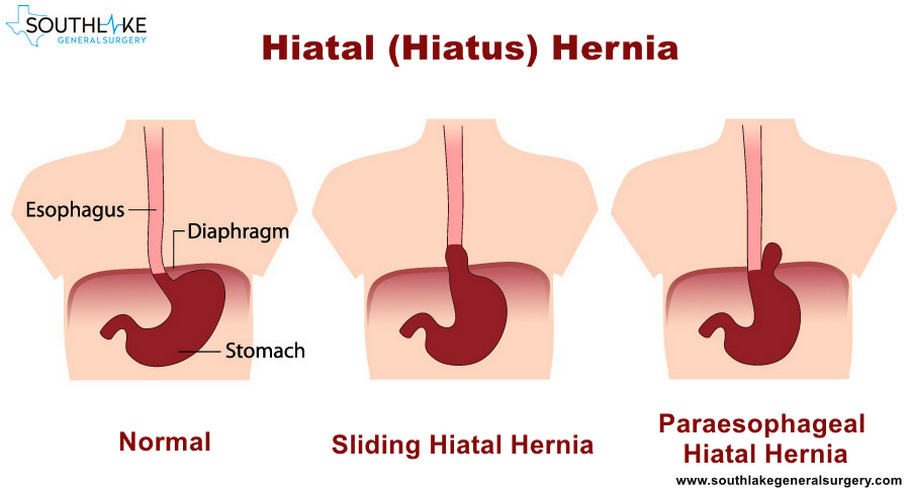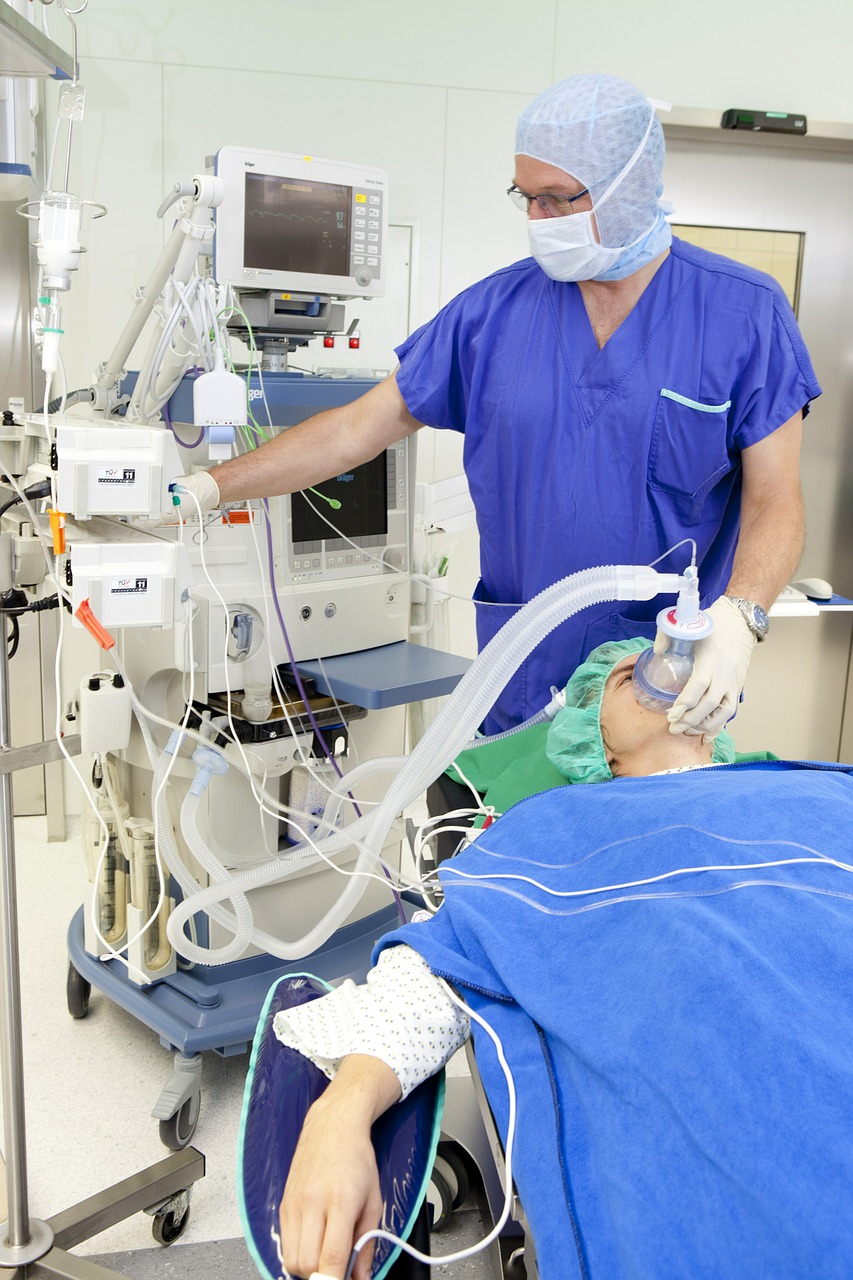What is Hiatal Hernia?
A Hiatal (hiatus) hernia happens when the upper part of the stomach pushes up through the diaphragm and into the chest region. The diaphragm is an enormous muscle that lies between the abdomen and chest. We use this muscle to breathe. Typically, the stomach is beneath the diaphragm, however in individuals with a hiatal hernia, a part of the stomach pushes up through the muscle. The initial it moves through is known as a hiatus.

This condition mainly happens in individuals who are more than 50 years of age. It influences up to 60 percent of individuals when they're 60 years of age, as per the Esophageal Cancer Awareness Association.
What causes a hiatal hernia?
The specific reason for many hiatal hernias isn't clear. In certain individuals, injury or other harm may debilitate muscle tissue. This makes it possible for the stomach to push through the diaphragm.
Another reason is putting a lot of weight (over and again) on the muscles around your stomach. This can happen when:
- vomiting
- stressing during bowel movements
- coughing
- lifting heavy items
A few people are also born with an unusually large hiatus. This makes it simpler for the stomach to moves through it.
Components that can build the risk of a hiatal hernia include:
- obesity
- aging
- smoking
Types of hiatal hernia
There are two kinds of hiatal hernia: Sliding hiatal hernias and Fixed, or Paraesophageal hernias.
Sliding hiatal hernia
It happens when stomach and esophagus slide into and out of chest through the hiatus. Sliding hernias will in general be little. They mainly don’t bring on any symptoms and might not require treatment.
Fixed hiatal hernia
In a fixed hernia, some portion of stomach pushes through diaphragm and remains there. Most cases are found not serious. Nonetheless, there is a risk that blood supply to stomach could get blocked. It this condition happens, it could cause severe damage and is viewed as a health related crisis or medical emergency.
Symptoms of a hiatal hernia
It's uncommon for even fixed hiatal hernias to cause symptoms. If any symptoms are encountered, they're mainly occur due to stomach acid, bile, or air entering in esophagus. General symptoms include:
- acid reflux that deteriorates when you lean over or lie down
- epigastric pain or chest pain
- problem swallowing
- belching
Medical emergencies
An impediment or a strangulated hernia may block blood supply to stomach. It is considered as a medical emergency. Immediately call primary care physician if:
- you feel nauseated
- you’ve been vomiting
- difficulty in pass gas or empty your bowels
Try not to assume that a hiatal hernia is causing chest agony or distress. It could likewise be an indication of heart issues or peptic ulcers. It's essential to see your primary care physician. A detailed physical examination can discover what is causing symptoms.
What is the connection among GERD and hiatal hernias?
Gastroesophageal reflux disease (GERD) happens when the food, liquids, and acid in stomach end up in esophagus. This can lead to indigestion or nausea after meals. It’s common for individuals with a hiatal hernia to have GERD. However, that doesn’t mean either condition consistently causes the other. Individual can have a hiatal hernia without GERD or GERD without a hernia.
How to diagnose hiatal hernias?
A few tests can diagnose a hiatal hernia.
Barium X-ray
Doctor may have you drink a fluid with barium in it before taking an X-ray. The picture allows doctor to see the area of stomach. In the event that it's projecting through diaphragm, you have a hiatal hernia.
Endoscopy
Doctor slides a thin tube in throat and pass it down to esophagus and stomach. Though this procedure doctor will be able to view if stomach is pushing through diaphragm. Any strangulation or blockage will likewise be visible.
Treatment for hiatal hernias
Most instances of hiatal hernias don't require treatment. The available symptoms typically decides treatment. If heartburn and acid reflux is experienced, treatment with medication or, if those don't work, surgery would be recommended.
Medications
Doctor may prescribe medications include:
- over-the-counter antacids to balance stomach acid
- over-the-counter or prescription H2-receptor blockers that reduce acid production
- over-the-counter or prescription proton pump inhibitors to forestall acid production, giving your esophagus time to recuperate
Surgery
If treatment with medication don't work, surgery might require for hiatal hernia. However, surgery isn't normally suggested.
Following types of surgery for this condition include:
- reconstructing weak esophageal muscles
- setting up stomach back in place and make hiatus smaller
For surgery, doctors either make a standard incision in the chest or abdomen, or use laparoscopic surgery, which abbreviates recuperation time.
Hernias can return after surgery. You can lower the risk by:
- maintain a healthy weight
- getting help lifting heavy items
- avoiding strain on abdominal muscles
Changes in Lifestyle
Heartburn causes most hiatal hernia symptoms. Change in eating routine can diminish symptoms. It might assist with eating small meals at several intervals rather than three heavy meals. Abstain from eating suppers or snacks within a couple of hours of heading to sleep.
There are additionally certain foods that may build the risk of heartburn. Consider maintaining a strategic distance from:
- zesty meals
- chocolate
- foods made with tomatoes
- caffeine
- onions
- citrus fruits
- alcohol
Different approaches to decrease symptoms include:
- quit smoking
- raising the head of your bed by in any event 6 inches
- abstaining bending over or lying down after eating
How to reduce risk of hiatal hernias?
You may not avoid a hiatal hernia entirely, but you can avoid making a hernia worse by:
Hiatal hernia may not be avoided completely, however, certain measure can be taken from exacerbating a hernia by:
- losing too much weight
- not stressing during bowel movements
- taking help when lifting heavy items
- avoiding tight belts and abdominal exercises

